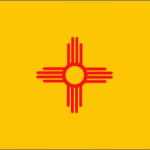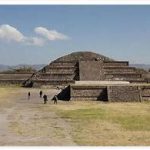Natural resources, energy and environment
Mexico is rich in natural resources. The country is the world’s largest silver producer, with major mines in the states of Chihuahua and Zacatecas. Mexico is also a major producer of gold, zinc, lead, copper, iron and several other metals and minerals. Oil has long been a pillar of the economy.
In Mexico, there are large smelters, and most of the ore is processed in the domestic industry. The mining sector was deregulated during the 1990s and the largest mines are now privately owned.
- COUNTRYAAH: Major exports by Mexico with a full list of the top products exported by the country. Includes trade value in U.S. dollars and the percentage for each product category.
In terms of oil, Mexico ranks tenth place among the world’s largest producers. The first oil was found around 1900 and the assets were nationalized. Much of the crude oil production comes from the Cantarell and Ku-Maloob-Zaap fields in the Gulf of Campeche in the Gulf of Mexico. However, the assets there are pushing faster than previously thought and no new reserves have been found in the area. Production has fallen steadily and in principle halved in 2018 compared to a top listing in 2004. Untouched oil and natural gas assets are believed to exist in deep water in the Gulf of Mexico and in shale fields, but Mexico lacks the knowledge and technology for extraction in such places.
Oil production is managed by the state-owned company Pemex, which is the country’s largest company, employer and industrial investor. It is also a dairy cow for the state; the company generates one-third of the federal budget. Pemex’s monopoly on all aspects of oil extraction has been enshrined in the constitution since 1938 and considered to be almost sacred to many Mexicans. Plans for a change that would allow privatization have been hampered by strong political opposition, previously also by PRI. However, President Enrique Peña Nieto (2012–2018) received support to open up the oil industry to private interests. But his successor, left-wing President Andres Manuel López Obrador, has put an end to the oil auctions for private companies launched, and Pemex is no longer allowed to enter into joint ventures with other players.
- Abbreviationfinder: A popular acronym site in the world covering abbreviation for each country. For example, MX stands for Mexico. Visit itypeusa for more information about Mexico.
Mexico is not a member of the oil-exporting countries’ organization Opec, but has adapted to its efforts to influence oil prices through production quotas.
Most of the country’s energy needs are covered by oil and natural gas. Gas is being used extensively in the power plants, despite Mexico being a net importer of natural gas. Coal, hydropower, renewable sources and nuclear power are the rest.
The extensive use of fossil fuels contributes to major environmental problems. Mexico City is one of the dirtiest cities in the world, thousands of people are estimated to die each year due to air pollution. A law passed in 2012 means that greenhouse gas emissions should be reduced by half by 2050. According to the binding law, 35 percent of energy must come from renewable energy sources in 2024.
Deforestation has led to almost half of the primeval forest that existed half a century ago now gone. But perhaps the most serious problem in the long run is that the supply of clean drinking water is steadily declining. The government considers both the decline in forests and the lack of water as well as national security issues. Mexico actually has strict environmental legislation, but corruption, lack of money and low interest in environmental issues among the population undermines the efforts.
FACTS – ENERGY AND ENVIRONMENT
Energy use per person
1,475 kilograms of oil equivalent (2015)
Electricity consumption per person
2071 kilowatt hours, kWh (2014)
Carbon dioxide emissions in total
480 271 thousand tonnes (2014)
Carbon dioxide emissions per inhabitant
3.9 tonnes (2014)
The share of energy from renewable sources
9.2 percent (2015)
2015
December
Card conductors are found murdered
Carlos Rosales Mendoza, founder of one of Mexico’s most violent drug cartels, La Familia Michoacana, is found dead in a car in Michoacán. He and three others who were found at the same time were, by all accounts, tortured and killed elsewhere and then dumped in the car at a pay station on a motorway. Rosales Mendoza was included in the list of America’s most wanted criminals.
November
New unit will investigate student disappearance
A special unit of police, prosecutors and forensic doctors is set up to investigate the case of the missing students, led by the IACHR. The authorities thus give in to parents’ demands (see also September 2014 and September 2015).
September
Criticism for handling student disappearance
Investigators from the Inter-American Commission on Human Rights (IACHR), which is investigating the case of the 43 missing teacher students (see September 2014), reject the authorities’ version of what happened as unreliable, as it is not possible to find evidence that the bodies were burned landfill. The IACHR investigators say that they have been hindered in their investigation and that evidence has been destroyed. The National Human Rights Commission has also recently criticized the authorities’ handling of the disappearance. The case has been handled subordinately legally and the relatives have received very little support, the report states. The relatives continue with their protest actions. The government is now ordering a new investigation. More than 100 people have been arrested since the disappearance.
August
Journalist murder provokes anger
The murder of a journalist from Veracruz triggers demonstrations in Mexico City, Guadalajara and Xalapa, the capital of Veracruz, against the state government and especially Governor Javier Duarte. Press photographer Rubén Espinosa had left the state in June when he felt threatened to life – but was found murdered in an apartment in the capital. There were also four murdered women in the apartment. All had been tortured. Espinosa became the seventh journalist in Mexico to be murdered in 2015. A man is arrested immediately after the murder and later a former police officer is arrested, suspected of involvement.
July
Important verdict in the fight against trafficking in women
A Chihuahua court sentenced five men to 697 years in prison for the murder of eleven women. The women must have been tricked into prostitution and drug trafficking, and then murdered when they were no longer considered useful. The target is seen as potentially very important in the fight against the widespread phenomenon of violence and, not least, the murder of women. According to the UN, Mexico is one of the 20 worst countries in the world in terms of violence against women.
First bidding on oil field
The historic, first sale of concessions is carried out, for 14 oil fields in the Gulf of Mexico. The outcome is worse than expected: for nine fields no bids came and for three low bids were lower than the requirements. The two fields that are distributed go to a Mexican-dominated consortium, Sierra Oil & Gas.
The leader of the Sinaloa cartel once again holds
Sinaloa cartel leader Joaquín “El Chapo” Guzmán again manages to escape from a high security prison (see February 2014), this time through a 1.5 kilometer tunnel. Prison staff are suspected of interference in the spectacular escape which is very troublesome for President Peña Nieto. Several prison managers are fired after the escape and a reward is announced for the equivalent of SEK 32 million for information that leads to Guzmán being arrested.
June
Mexico leaves beauty contest because of Trump
Mexico withdraws from the popular Miss Universe TV contest, in protest of partner Donald Trump saying “racist” about Mexicans in announcing his candidacy in the 2016 US presidential election. Trump’s statements have received NBC and two other TVs company to break the cooperation with him. The real estate magnate called Mexicans for drug dealers and rapists, and said he wants to build a wall against Mexico – at the expense of Mexicans.
Teacher evaluations resume after a temporary halt
The disputed teacher evaluations (see September 2013) resume after a short break. The Ministry of Education’s announcement in May that they would be canceled was assumed to be an attempt to curb the protests of the teaching profession CNTE, which was unsuccessful. CNTE has continued to demand that education reform be scrapped. When evaluations resume, CNTE announces an indefinite strike in Oaxaca and Michoacán.
Success for PRI in midterm elections
7 June
The PRI government is doing well in the congressional elections and is supported by about 29 percent of voters. Together with its alliance parties PVEM and the New Alliance (Panal), PRI retains its majority in the Chamber of Deputies, with slightly more mandates than before (260 out of 500). The PRD makes a disaster choice as many voters follow López Obrador and cast their votes on the newly formed Left Party Morena. At the state level, PRI suffers some stinging defeats. In Nueva León, for the first time, an independent candidate is elected governor.
May
Many dead in fire fighting with police
A firefight in Tanhuato, Michoacán, near the border with Jalisco, requires 43 lives. One is said to be a police officer and the rest are suspected gang members. The collapse, which is one of the bloodiest in nearly a decade in Mexico, breaks out when security forces enter a property that armed men are said to have taken over. Relatives of the dead accuse the authorities of having committed a “massacre”. Only 40 weapons have been seized, which security experts say strengthens the image of the assault.
April
New anti-corruption law
Congress adopts a law against corruption that, according to critics, is not far enough, because the president and other leading politicians still have prosecutorial immunity.
Assault against police officers in Jalisco
Fifteen police officers are shot dead and five injured in an assault on a Jalisco road. In the same state, five police officers were killed in an assault in March. It is unclear who is behind the attacks described as well-organized. In the area is the Jalisco nueva generación, one of the most powerful drug cartels in the country.
March
The leader of the Zeta cartel is arrested
Just days after “La Tuta”, Zeta cartel leader Omar Treviño Morales, in Monterrey, is also arrested. He has been appointed as the group’s leader since his brother was arrested (see July 2013). Treviño Morales also shows up in front of the TV cameras on his way to the high-security prison outside Mexico City.
February
The most elaborate drug king is seized
Police in Michoacán seize the most wanted drug king in the country, Servando “La Tuta” Gómez. His brother Flavio Gómez, financial manager of the cartel, is also arrested, as well as another eight people. “La Tuta” is flown to Mexico City where he shows up for the TV cameras before being taken to prison.
January
Missing journalist is found murdered
Three weeks after he was kidnapped from his home, journalist Moisés Sánchez is found with his head cut off. Sánchez wrote about drug-related violence and corruption in the state of Veracruz. Thirteen police officers have been arrested following the abduction and one must have acknowledged participation in the murder of him. According to the National Human Rights Commission (CNDH), 97 journalists have been murdered in Mexico since 2010.










